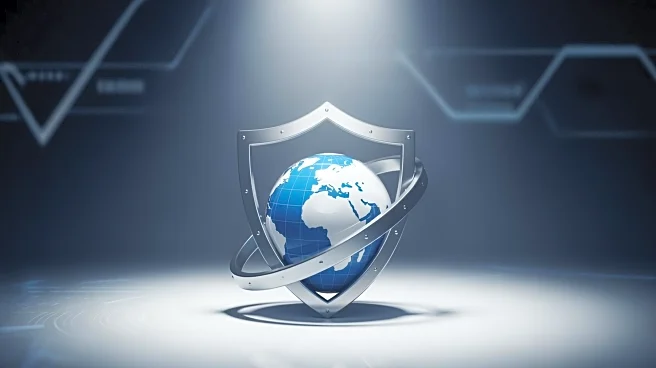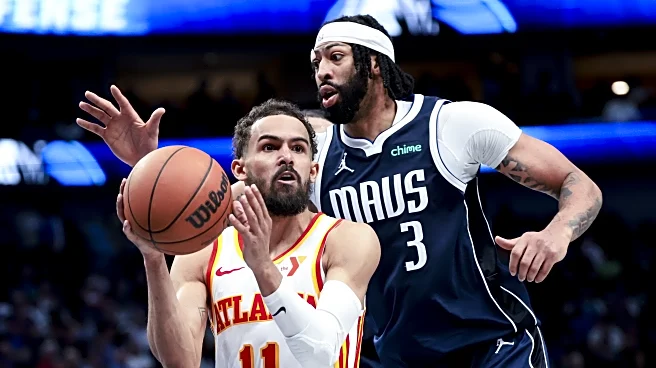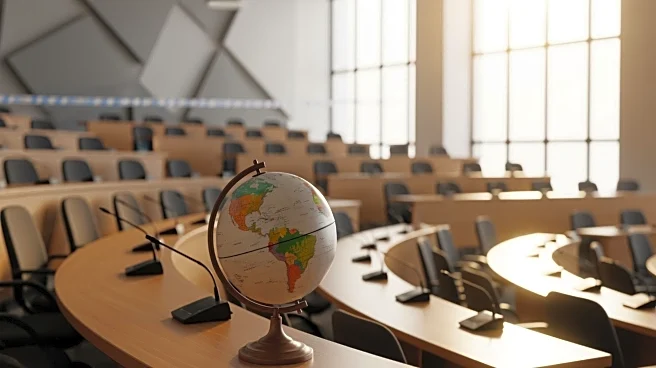What's Happening?
The United States has shifted its global health strategy to prioritize national security and geopolitical competition, as outlined in the recently released America First Global Health Strategy. This approach marks a departure from the previous focus on global health as a shared
responsibility, emphasizing instead the U.S.'s strategic interests. The strategy continues a trend initiated under President Trump, which included withdrawing from the World Health Organization (WHO) and reducing key USAID programs. Historically, U.S. initiatives like PEPFAR and the Global Fund have been seen as moral diplomacy, but the COVID-19 pandemic exposed vulnerabilities in this approach, as wealthier nations hoarded vaccines and monopolized essential technologies. The new strategy formalizes the erosion of the post-Cold War consensus that positioned Western donors as stewards of global health, with multilateral institutions like WHO facing constrained authority.
Why It's Important?
The shift in U.S. global health strategy has significant implications for international health governance and equity. By focusing on national security, the U.S. may influence other high-income countries to prioritize their own security concerns over global health equity. This could lead to reduced support for multilateral health initiatives and a decline in international aid, impacting low-income countries that rely on such support. The strategy also reflects broader geopolitical shifts, including increased competition among the U.S., China, and Russia. For African countries, this change underscores the need for self-sufficiency in health security, as reliance on external aid becomes less viable. The African Union's New Public Health Order aims to address these challenges by strengthening local health systems and manufacturing capabilities.
What's Next?
In response to the changing global health landscape, African countries are working to enhance their health security through the African Union's New Public Health Order. This includes initiatives to expand local vaccine manufacturing and improve public health institutions. The African CDC has been elevated to an autonomous agency, allowing it to declare Public Health Emergencies of Continental Security. Additionally, the African Epidemic Fund and the African Medicines Agency are being developed to support these efforts. As Africa seeks to negotiate more equitable partnerships, the upcoming G20 Leaders’ Summit in Johannesburg will be a critical platform for advancing African priorities in global health reforms.
Beyond the Headlines
The shift in U.S. global health strategy highlights the ethical and political challenges of balancing national security with global health equity. As the U.S. and other high-income countries prioritize their own interests, there is a risk of increased fragmentation in global health governance. However, this fragmentation could also lead to innovation and more legitimate governance, as regional mechanisms like the Africa Medical Supplies Platform demonstrate the potential for collective action. For Africa, the challenge will be to ensure that regional efforts do not reproduce inequities within the continent and that external engagements are anchored within AU-led mechanisms.














